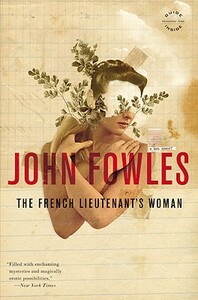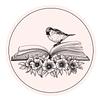Take a photo of a barcode or cover
emotional
mysterious
slow-paced
Plot or Character Driven:
A mix
Strong character development:
Yes
Loveable characters:
No
Diverse cast of characters:
No
Flaws of characters a main focus:
Yes
reflective
medium-paced
Plot or Character Driven:
Character
Strong character development:
Yes
Loveable characters:
Complicated
Diverse cast of characters:
Yes
This is by far the most complex book that I've read. I enjoyed the complexity of the descriptions and 'advanced' vocabulary that this John Fowles used. Of course, this is all to be expected in literature.
It took me a bit over two weeks to read this book, which is long, for me. The time that I have taken to read this book was absolutely necessary and at some points, I only read ten pages a day. Because of that, I did not fully process the book. It will be needed to reread this book I can deduce.
As I have -quite literally- just finished this book, the end lingers the most in my mind. I love how at some point in the book Fowles said he hadn't fixed the characters end and he was allowing the characters to go where they shall. He is also quite talented in requiring the needed information that one -who does not know anything about the Victorian era- would need.
It was a high-quality book and I highly recommend to people who like complexity. Just, I beg you, don't put a limit on how fast you wish to read this book (like I did) it will make it more enjoyable.
It took me a bit over two weeks to read this book, which is long, for me. The time that I have taken to read this book was absolutely necessary and at some points, I only read ten pages a day. Because of that, I did not fully process the book. It will be needed to reread this book I can deduce.
As I have -quite literally- just finished this book, the end lingers the most in my mind. I love how at some point in the book Fowles said he hadn't fixed the characters end and he was allowing the characters to go where they shall. He is also quite talented in requiring the needed information that one -who does not know anything about the Victorian era- would need.
It was a high-quality book and I highly recommend to people who like complexity. Just, I beg you, don't put a limit on how fast you wish to read this book (like I did) it will make it more enjoyable.
I had to read this for school and just nope I never finished it.
if classics are your thing, go ahead and read this but if not I wouldn't advise it
if classics are your thing, go ahead and read this but if not I wouldn't advise it
I have no idea where to begin with this novel. On the surface it appears to be written as a normal Victorian, realism novel but it turns out to be so much more than that. The French Lieutenant’s Woman ended up being a book that I didn’t entirely expect and I loved it.
The protagonist of the book isn’t the French Lieutenant’s woman or even the French Lieutenant (which was also a surprise to me), but one Mr Charles Smithson. At the beginning of the novel we meet him and his girlfriend/fiancee Ernestina Freeman; who appear to be happy in their relationship, finally deciding to take the step to marry. However things aren’t quite as simple when the mysterious Sarah Woodruff causes Charles’ inner conflict.
I loved all of the different characters and the way they were portrayed. I particularly enjoyed the fact you didn’t know (until the final chapters) what Charles was going to do about his internal battle. The way Charles and Sam interacted was quite amusing and the relationship between class is well illustrated here. I also like the mystery surrounding Sarah, even after finishing the novel I’m still not sure of her motivations for some of her actions. However I think that adds to the appeal of the character.
What fascinated me most about this novel wasn’t the plot or the characters by the way Fowles wrote it. In chapter 13 the illusion of the story is broken and you’re reminded of the reality that what you’re reading is fiction. At random times throughout the novel there are confessions from Fowles that he doesn’t know what he’s doing. He outright declares it on many occasions. There is even a point where he tells us he contemplated ending the story (a fair few chapters before the final one) which really amused me - especially because of the matter-of-fact tone (“they married, they bred, they died”). However this novel ends up with having around three or four endings to entertain the reader, allowing them to pick what they feel most suits the story that they have been reading. I thought this was a fantastic touch and left me very satisfied.
I honestly cannot fault this book. Yes, some characters had their flaws and the author randomly addressing the reader can be quite jarring, but I found that it made the experience of the book much more interesting than it would have, had it been a one dimensional story. For me, this novel had a great plot and a wonderful insight into a writer’s working mind about their own work. This is most definitely one I would recommend.
The protagonist of the book isn’t the French Lieutenant’s woman or even the French Lieutenant (which was also a surprise to me), but one Mr Charles Smithson. At the beginning of the novel we meet him and his girlfriend/fiancee Ernestina Freeman; who appear to be happy in their relationship, finally deciding to take the step to marry. However things aren’t quite as simple when the mysterious Sarah Woodruff causes Charles’ inner conflict.
I loved all of the different characters and the way they were portrayed. I particularly enjoyed the fact you didn’t know (until the final chapters) what Charles was going to do about his internal battle. The way Charles and Sam interacted was quite amusing and the relationship between class is well illustrated here. I also like the mystery surrounding Sarah, even after finishing the novel I’m still not sure of her motivations for some of her actions. However I think that adds to the appeal of the character.
What fascinated me most about this novel wasn’t the plot or the characters by the way Fowles wrote it. In chapter 13 the illusion of the story is broken and you’re reminded of the reality that what you’re reading is fiction. At random times throughout the novel there are confessions from Fowles that he doesn’t know what he’s doing. He outright declares it on many occasions. There is even a point where he tells us he contemplated ending the story (a fair few chapters before the final one) which really amused me - especially because of the matter-of-fact tone (“they married, they bred, they died”). However this novel ends up with having around three or four endings to entertain the reader, allowing them to pick what they feel most suits the story that they have been reading. I thought this was a fantastic touch and left me very satisfied.
I honestly cannot fault this book. Yes, some characters had their flaws and the author randomly addressing the reader can be quite jarring, but I found that it made the experience of the book much more interesting than it would have, had it been a one dimensional story. For me, this novel had a great plot and a wonderful insight into a writer’s working mind about their own work. This is most definitely one I would recommend.
It's a masterpiece. I hate it and love it at the same time. I've never felt so many emotions about a book simultaneously. Worth of the struggle through first 17 chapters.
When I saw this book on my university reading list, I put it off until just a week before the final exam because it just didn’t sound like something I would enjoy; the blurb makes it sound like a simple Victorian love-triangle. However, now I have read it, I can say that I don’t think that the blurb does it any justice.
After the first few pages I got completely absorbed into the story and despite having not read consistently for months now, I found myself really wanting to pick this back up to see what was going to happen. The narrative style is something that I haven’t come across before; the narrator is in the 1960s narrating the Victorian story but with interjections about his own opinions and age. This unique style was something that really helped me to digest some of the more complicated themes discussed and although some sections were a little confusing, I found that I still enjoyed it overall.
Themes such as Victorian sexuality and morality are discussed in depth, highlighting the downfalls of the Victorian ideal but it never seems to be preaching, more just bringing another view of events.
The characters were all very realistic; I hated them at points and loved them at others. Every one of them was flawed in some way.
Another unique thing about this novel is that there are multiple endings, leaving the conclusion to the story a little ambiguous. I can understand how this could irritate some people but it suited the narration style perfectly and left the ending up to the reader’s imagination.
Overall I would highly recommend this novel to anyone that likes reading about different time periods. With the Victorian age illuminated by the 1960s perspective, you really get a broad sense of British history and the changes that have taken place since the Victorian period.
After the first few pages I got completely absorbed into the story and despite having not read consistently for months now, I found myself really wanting to pick this back up to see what was going to happen. The narrative style is something that I haven’t come across before; the narrator is in the 1960s narrating the Victorian story but with interjections about his own opinions and age. This unique style was something that really helped me to digest some of the more complicated themes discussed and although some sections were a little confusing, I found that I still enjoyed it overall.
Themes such as Victorian sexuality and morality are discussed in depth, highlighting the downfalls of the Victorian ideal but it never seems to be preaching, more just bringing another view of events.
The characters were all very realistic; I hated them at points and loved them at others. Every one of them was flawed in some way.
Another unique thing about this novel is that there are multiple endings, leaving the conclusion to the story a little ambiguous. I can understand how this could irritate some people but it suited the narration style perfectly and left the ending up to the reader’s imagination.
Overall I would highly recommend this novel to anyone that likes reading about different time periods. With the Victorian age illuminated by the 1960s perspective, you really get a broad sense of British history and the changes that have taken place since the Victorian period.
I really like this work- clearly translating from Hardy, Fowles uses a more non-fictional approach in his descriptions. His characters also seem a little more sure of themselves- there is no sense that they are simply running against fate, since Fowles himself does not portray himself as an omniscient narrator.


